Your Personal God Revealed: How to Find Your Ishta Devata
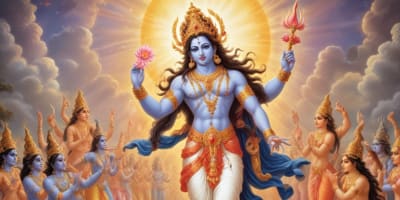
Have you ever felt an unexplainable connection to one particular form of God? Maybe you feel a wave of calm when you hear the name of Krishna, or you find peace in looking at a picture of Shiva. That quiet pull you feel might not be just coincidence. It could be the presence of your Ishta Devata — your personal deity, quietly guiding you.
In Hindu philosophy, the divine takes many forms, and yet, the path to the One often begins with the One we feel most drawn to. This blog will help you understand who your Ishta Devata might be, why that relationship matters, and how it can completely shift the way you experience life and spirituality.
What Is an Ishta Devata?
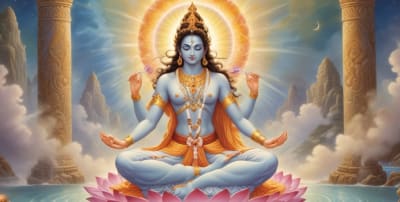
"Ishta" means "beloved" or "preferred," and "Devata" means "divine being" or "deity." Put together, Ishta Devata refers to your personal or chosen form of God — the one you feel closest to in your spiritual journey.
Unlike the idea of a single god figure in many religions, Hinduism embraces a beautiful truth: that the infinite can take many forms, and every individual connects with that infinity in their own unique way. Your Ishta Devata is the form of God your soul naturally feels aligned with — not by religion or ritual, but by deep inner feeling.
Historically, the idea gained popularity during the Bhakti movement, when spiritual seekers emphasized personal devotion over rituals. Saints like Meera, Tulsidas, and Ramakrishna poured their hearts out to their Ishta Devata and found unimaginable joy and inner freedom through that connection.
Why Having an Ishta Devata Changes Everything
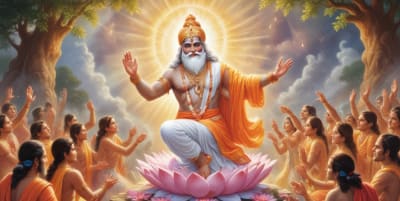
Worship often becomes mechanical — lighting incense, chanting verses, following rituals. But when you find your Ishta Devata, all of that transforms into something deeply personal. You stop "doing puja" and start having a conversation with God.
People often say they feel calmer, clearer, and more centered when they begin regular devotion to their chosen deity. It's as if the divine becomes real — no longer just a concept, but a comforting presence you can lean on.
Having an Ishta Devata helps you build a consistent spiritual practice. Instead of feeling overwhelmed by the many forms and names of the divine, you focus on the one that speaks to your soul. And in that simplicity, something sacred begins to grow.
How Do You Know Who Your Ishta Devata Is?
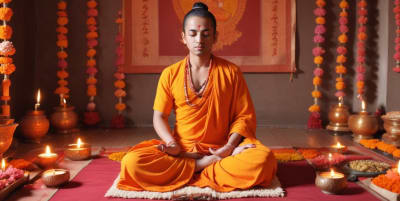
There isn’t a checklist or a test. Your Ishta Devata is not chosen by logic — it's recognized by the heart. For many people, the realization begins as a subtle emotional bond. Maybe you’ve always been drawn to stories of Krishna’s childhood or found peace in the fierce, protective form of Durga. Some people find that mantras of a particular deity make them emotional or deeply calm. Others have dreams, visions, or intuitive nudges during meditation. The signs are personal — not dramatic, but undeniable.
Childhood memories often offer clues. Think back: Was there a deity you were unknowingly obsessed with? A form of God you drew in school or kept a picture of near your bed? Sometimes the connection is planted early, before we even understand it.
And for those seeking deeper insight, Vedic astrology can be surprisingly revealing. In your birth chart, the planet known as your Atmakaraka — the soul planet — and the ruler of your 12th house (connected to moksha or liberation) can point to the form of God you're karmically linked with. If your soul planet is the Moon, you might resonate with the Divine Mother in her many forms. If it’s Mars, you could feel close to Hanuman or Kartikeya.
But you don’t need astrology to know. The truth is, your Ishta Devata is already quietly walking beside you. You just need to notice.
Understanding the Qualities of Popular Ishta Devatas
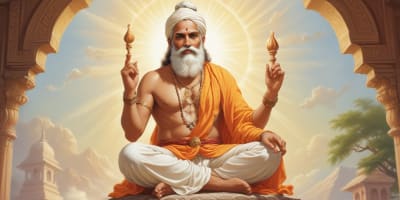
Each deity represents a different divine energy, and that energy often reflects the qualities we need most in life. Shiva teaches us calm and detachment. Krishna invites us into joy and divine playfulness. Hanuman gives us strength and discipline. Lakshmi reminds us to embrace abundance with gratitude, while Durga helps us stand firm in the face of fear.
Some are drawn to Rama for his unwavering dharma and sense of duty, others to Kali, whose fierce love burns away everything that isn't real. And some feel closest to Ganesha, whose childlike presence clears the path with wisdom and laughter.
The form you’re drawn to says something about your inner self — not just what you love, but what your soul is seeking.
How to Build a Relationship With Your Ishta Devata

Once you begin to recognize who your Ishta Devata might be, start engaging with them — not like a distant divine figure, but like someone you trust deeply. This is the beginning of your most sacred friendship.
Chant their name softly when you're walking, resting, or anxious. Speak to them when you're confused. Read their stories — not for information, but to understand their essence. Keep an image or small murti near your bed or workspace. Light a diya in their name. Offer food with love, even if it's just a piece of fruit. You don't need to be a priest to pray. You just need to be honest.
You’ll begin to notice something: an inner stillness, a comfort, a feeling that you're not alone. That’s how Ishta Devata works. Quietly. Faithfully. Personally.
Ishta Devata vs Kul Devata – Not the Same
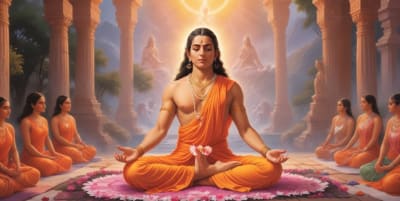
While Ishta Devata is the personal God you feel connected to, Kul Devata is the deity worshipped by your family lineage. Your ancestors may have honored a particular form of God for generations, and that deity is seen as the protector of the family.
It’s a beautiful tradition to continue Kul Devata worship — it keeps your ancestral energy strong. But your Ishta Devata is about your own soul. Many people worship both. One protects your roots. The other guides your wings.
Conclusion
 The journey to discovering your Ishta Devata isn’t a race. Some people recognize their connection early in life; for others, it happens after years of searching. There’s no rule that says you must have just one, either. Sometimes, the divine appears in different forms at different times — each one teaching you something new.
The journey to discovering your Ishta Devata isn’t a race. Some people recognize their connection early in life; for others, it happens after years of searching. There’s no rule that says you must have just one, either. Sometimes, the divine appears in different forms at different times — each one teaching you something new.
But when you do find that form that feels like home, you'll know. It will feel like silence inside your heart suddenly turned into a song. Because in the end, your Ishta Devata doesn’t belong to the mind. They live in the space between your breath and your being.
And once you recognize them, life — even with all its chaos — feels just a little more divine.




